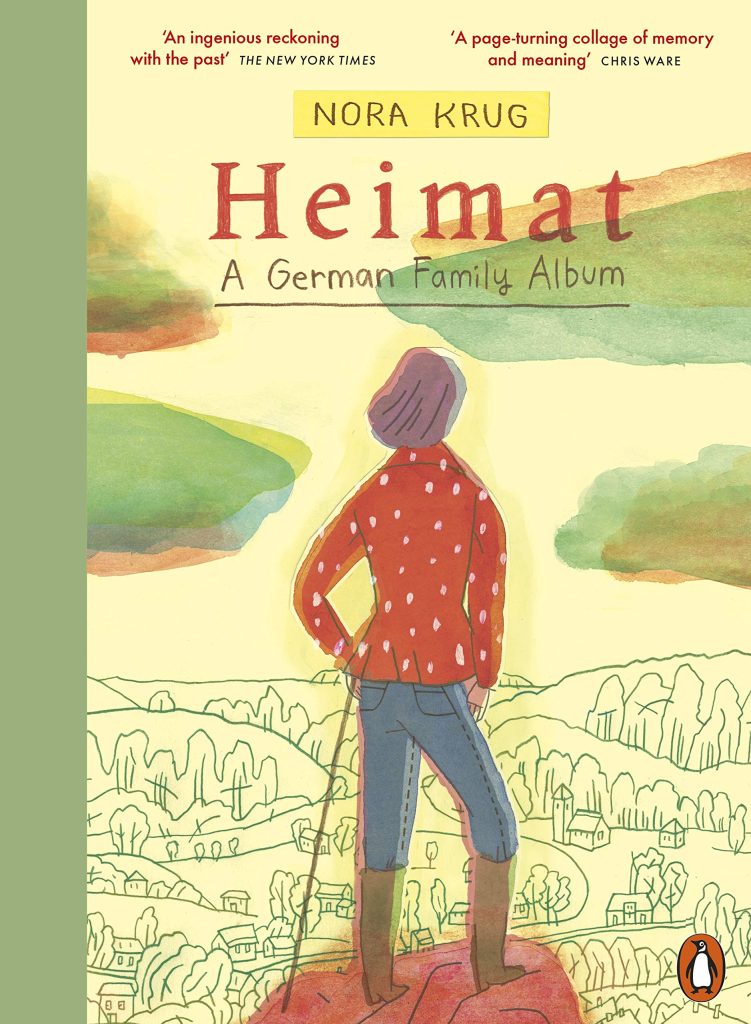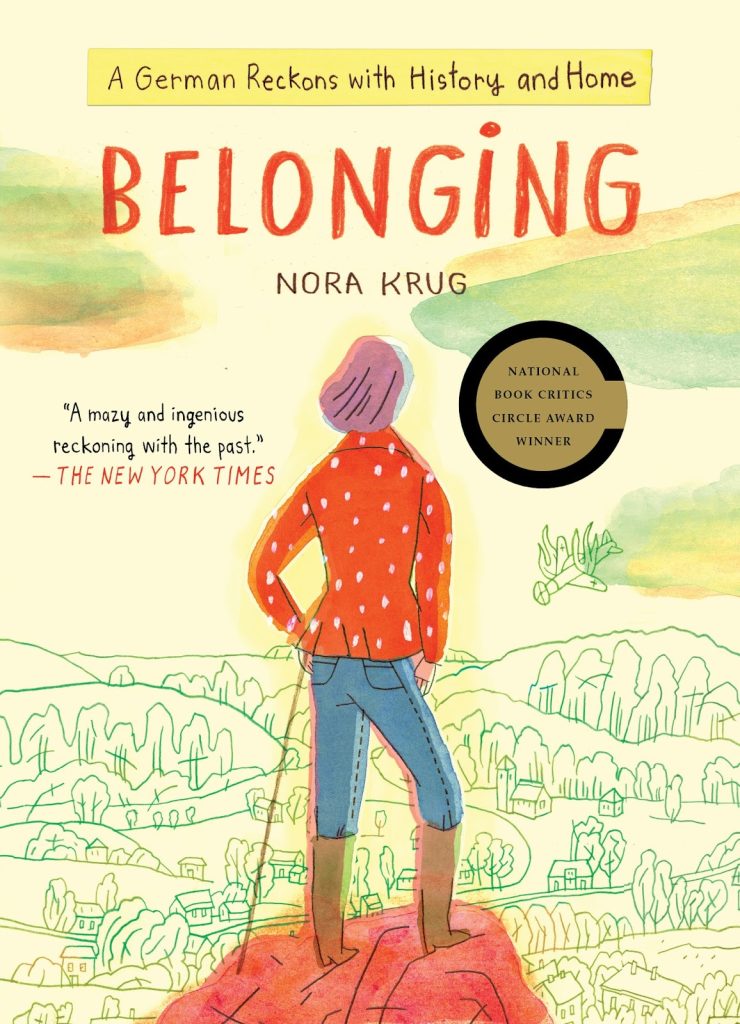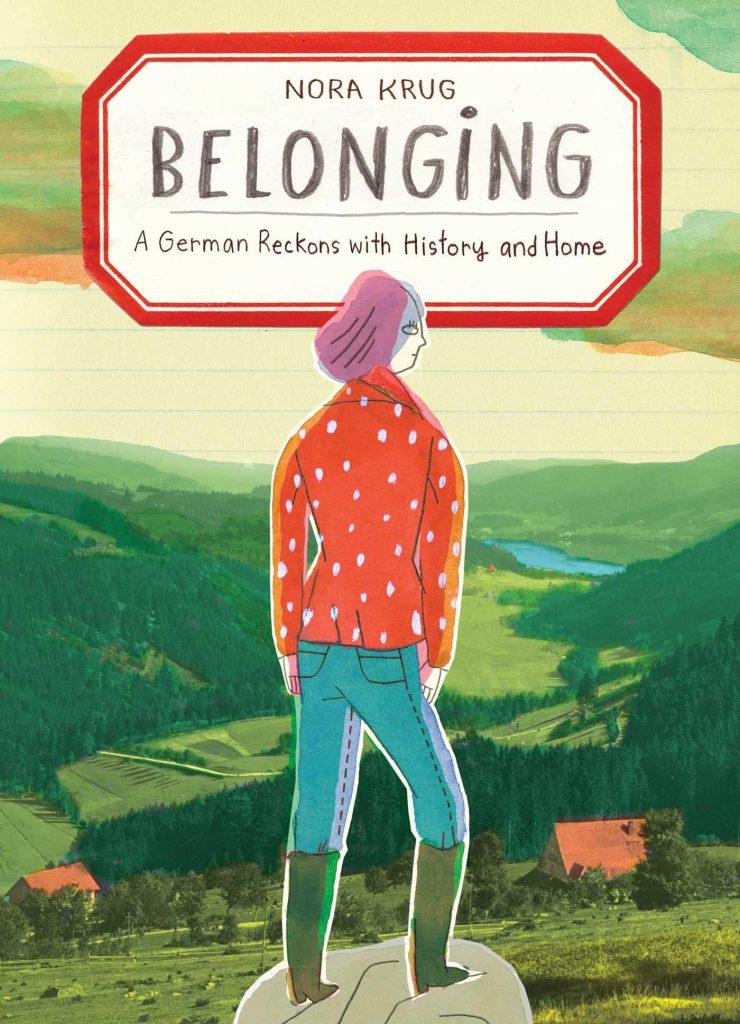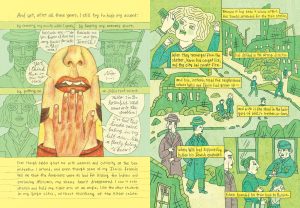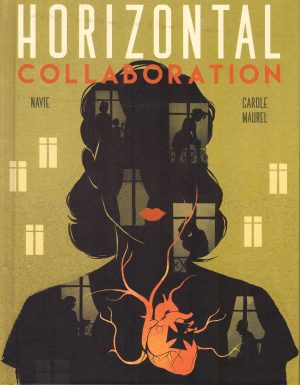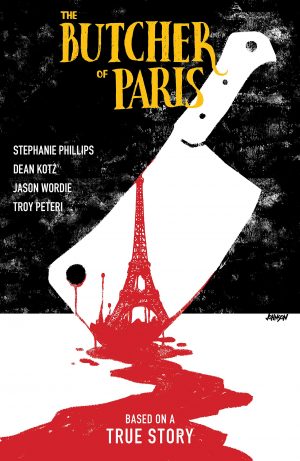Review by Frank Plowright
Released under different titles in hardcover and paperback, both Heimat A German Family Album and the more awkward Belonging: A German Reckons With History and Home are Nora Krug’s search through her recent ancestral history. When as a German student she moves to New York, practically the first person she meets is a woman who survived the World War II concentration camps. An extremely awkward conversation has awareness of history draped over it from both sides. Krug starts as she means to continue.
It could be that you won’t consider Heimat/Belonging a graphic novel, and you’d have a point. It primarily merges handwritten text and pictures, but in many cases those pictures, especially the photographs used, don’t require the text for contextualisation. Even when Krug applies her own simple illustrations they’re abstracted and don’t tell a story as such, although some comic strips are included. However, the accumulation does tell a story, and it’s one of personal confusion, repression and guilt raising questions. How far should any German these days feel responsible for the crimes of their ancestors? Is any form of German nationalism by its very existence toxic? Krug feels the only way to answer these questions is to ask even more awkward personal ones as she delves into her family history.
The result is an outpouring of stories, sometimes amusing and anecdotal, and sometimes horrifying amid a greater quantity of discoveries reducing people to mundane in extreme surroundings, much against expectation. What Krug keeps uppermost, though, are these concern individuals. There’s a shock to seeing personalised death notifications otherwise designed to offer some shred of comfort, signing off with “Heil Hitler”, and even more chilling are the examples of the trade in Nazi memorabilia scattered through the book, including replica 1940s football boots with a swastika imprinted on the sole. Equally shocking is to discover German phone books of the 1930s, or at least those of Karlsruhe, a reasonable sized industrial city, maintained a separate section for “Jewish citizens”.
While Krug is a diligent researcher, this is a personal memoir, and she speculates about what her grandfather may or may not have known, or even participated in. From the start she suspects deception, as if ignoring the possibility that plenty of Germans didn’t consider the harshness of historical judgement in prioritising their own safety under the Nazis. There is naturally the inevitable conclusion that whatever records claim people did or said, there’s no knowing the reasons behind that. A fascinating excavation has a couple of frustrating moments, one being a fractured relationship never adequately explained, although obviously personal. Also, some parts are difficult to read because Krug hand writes her text either side of a photograph rather than in two paragraphs.
Otherwise this is a readable memoir investigating toxic times. It veers away from the questions originally raised into exploration of identity, of how much of what we are is what we came from, and never loses sight of individuals. Thankfully, instead of fracturing family relationships there’s some healing, and if the truth about some aspects will never fully be known, there is closure.
